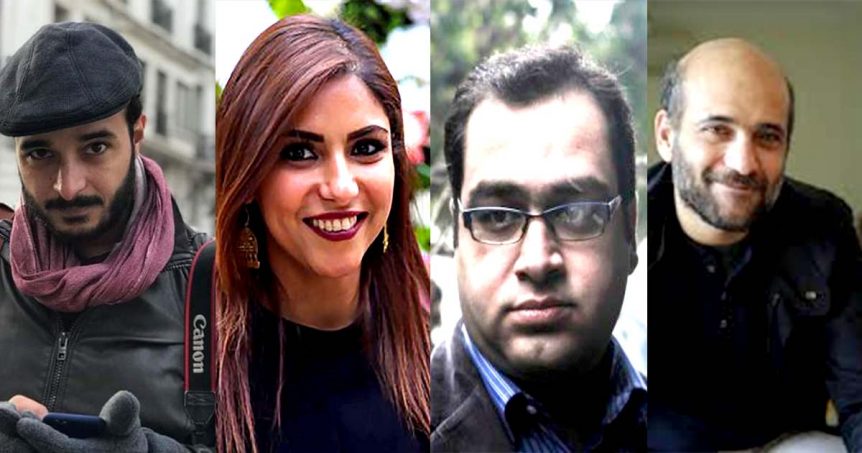Shady Habash, a 24-year-old Egyptian filmmaker detained since March 2018, died on Saturday, May 2nd in Cairo’s Tora Prison. His death highlights the alarming situation of prisoners of conscience – and more broadly, of human rights – in Egypt. With the COVID-19 pandemic, the conditions in Egypt’s prisons have become of ever-greater concern. The Belgium –Francophone branch of Amnesty International, the National Center for Development Cooperation (CNCD-11.11.11), the International Federation of Human Rights (FIDH) and the Cairo Institute for Human Rights Studies (CIHRS) call on Belgium and the European Union to exert pressure on the government of Egypt to release prisoners of conscience and prisoners vulnerable to COVID-19 exposure.
Over the past few years, the human rights situation in Egypt has sharply deteriorated. Since Abdel Fattah al-Sisi’s forcible takeover of power in 2013, his political opponents – whether they be Islamist, leftist or liberal, journalists; or human rights defenders, lawyers or academics – have all been subjected to unprecedented repression by the Egyptian government. Today, NGOs estimate the number of prisoners of conscience to be at over 60,000 out of a total of at least 114,000 detained, according to the Office of the United Nations High Commissioner for Human Rights.
Shady Habash had been detained for over two years for producing a music video for a song critical of Egypt’s President Abdel Fattah al-Sisi. For this, he was accused of “belonging to an illegal organization” and “spreading false news.”Shady’s health deteriorated considerably before his death. His fellow prisoners, who witnessed him dying in his cell, called for help, but to no avail. Medical negligence in Egypt’s prisons has often been denounced by human rights organizations.
Ramy Shaath, a Palestinian-Egyptian human rights defender, is also detained at Tora Prison. He actively participated in Egypt’s2011 revolution and is the founder of the Boycott, Divestment and Sanctions (BDS) movement in Egypt. Ramy is also the son of Nabil Shaath, senior advisor to Palestinian President Mahmoud Abbas. He was arrested in June 2019 and has been held ever since in pre-trial detention: meaning that he has been detained without evidence and without a trial. On April 18th 2019, Egyptian government authorities added Ramy Shaath and a dozen of others to the “List of terrorist entities and persons” for a period of five years. This was done despite the fact they were neither present at the trial nor informed of the reasons they were added to the list. Designating Ramy as a terrorist allowed the authorities to freeze his assets and confiscate his passport, preventing him from traveling and reuniting with his wife in France. His wife, Céline Lebrun Shaath, of French nationality, was forcibly deported in June 2019 following her husband’s arrest.
Another prisoner of conscience detained at the Tora Prison is Zyad el-Elaimy, a human rights lawyer, former parliamentarian, and one of the founders of the Civil Democratic Movement (CDM). Zyad was arrested shortly before Ramy Shaath in June 2019. Zyad was also charged, tried, and sentenced to one year in prison in another case, for “insulting the President” during a BBC interview in 2017. On April 18th of this year, Zyad el-Elaimy, just like Ramy Shaath, was added to the”List of terrorist entities and persons.”
Recently, Amnesty International raised the cases of three journalists Solafa Magdy, Hossam el Sayyad ( Shady Habash’s cellmate)and Mohamed Salah, the latter two of whom are also held in Tora Prison. On November 26, 2019, Solafa, Hossam and Mohamed were arrested by police at a coffee shop in the Dokki area of Cairo. The three journalists were arrested for their advocacy in defense of their friend Esraa Abdelfattah, another journalist and activist detained and tortured in October 2019. They face the typically-deployed fabricated charges; “membership in a terrorist group” and of “spreading false news.”
These cases demonstrate the plight of the thousands arbitrarily detained for their opinions in Egypt. Numerous appeals have been made demanding the release of the prisoners in order to mitigate the risks of the spread of COVID-19 inside Egyptian prisons. Unsanitary living conditions, the impossibility of social distancing in overcrowded prison cells, and the lack of healthcare render detainees acutely vulnerable to the spread of the virus. Yet instead of following the recommendations to release prisoners, the Egyptian authorities have continued to arrest persons for expressing opinions, particularly regarding the Egyptian government’s handling of the coronavirus crisis. Visits have been prohibited and court hearings suspended from March 9, further isolating the prisoners. On April 28, the courts were authorized to renew pre-trial detention without either the defendants or their lawyers present. Over 1600 people are currently in pre-trial detention, many of whom are prisoners of conscience according to Amnesty International.
WithRamy, Zyad, Solafa, Hossam, Mohamed, Esraa and the 60,000 other prisoners of conscienceunjustly detained, and with COVID-19 onlyexacerbatingthehealth risks they face, the Belgium –Francophone branch of Amnesty International, the National Center for Development Cooperation (CNCD-11.11.11), the International Federation of Human Rights (FIDH) and the Cairo Institute for Human Rights Studies (CIHRS) callonBelgium and the European Union to exert pressure on the Egyptian government to release the prisoners of conscience as well as prisoners most vulnerable to COVID-19 in order to minimize the risk of the pandemic spreading in Egypt’s prisons.
Signatories:
- Amnesty International Belgium
- Cairo Institute for Human Rights Studies
- CNCD-11.11.11
- FIDH
Share this Post

